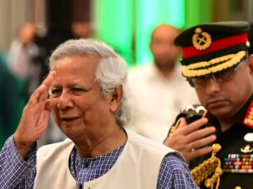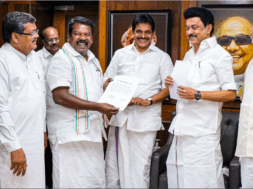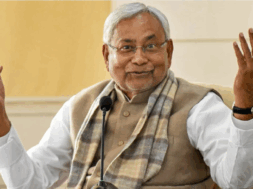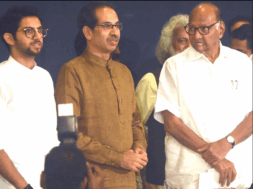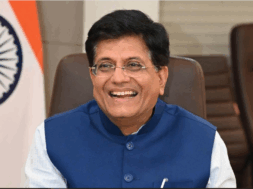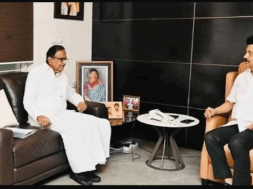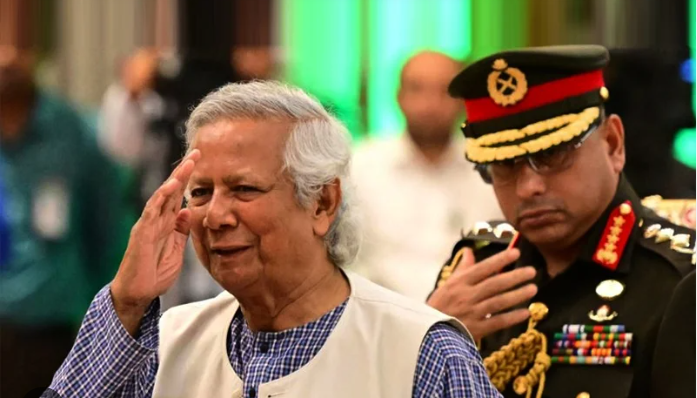
Roving Periscope: Chinmoy denied bail as ‘East Pak’ apes Islamabad and Beijing
Virendra Pandit
New Delhi: Three days after Bangladesh Army chief General Waker-Uz-Zaman described Dhaka’s relations with New Delhi as “give-and-take” and with Beijing as a “partner in development”, a Bangladesh court on Thursday rejected the bail plea of Hindu monk Chinmoy Krishna Das, who was arrested on November 25, 2024, on trumped up “sedition” charges.
The bail plea, presented by a group of 11 Supreme Court lawyers who traveled from Dhaka to Chattogram, was denied by Metropolitan Sessions Judge Muhammed Saiful Islam after a 30-minute hearing, Dhaka’s The Daily Star reported.
Since the ouster of Sheikh Hasina Wajed’s Awami League-led democratically- elected government on August 5, 2024, the Hindus and other minorities, comprising only about 8 percent of the 170 million population, have faced relentless attacks across more than 50 districts of the predominantly Sunni Muslim country.
Chinmoy Krishna Das, a key figure in the Bangladesh Sammilita Sanatani Jagran Jote, was arrested and denied bail in an alleged sedition case after he called for the implementation of a minority protection law, the creation of a tribunal to expedite cases of minority persecution, and the establishment of a separate ministry for minority affairs. He was first taken into custody following the filing of a sedition case against him and 18 others in Chittagong on October 30, the media reported.
On Monday, General Waker, the real power behind the Islamist-fueled interim government, nominally led by Muhammed Yunus, 84, told a media outlet that his country’s commitment to do nothing that conflicted with India’s strategic interest “depended on New Delhi also refraining from actions contrary to Dhaka’s interests, such as denying it its fair share of water.” He did not rake up the issue of Hasina’s extradition to Dhaka for which Bangladesh has officially asked India.
The Army chief characterized the India-Bangladesh relations as a “give-and-take relationship” while describing China as “a partner in our development.” He asserted that relations “must be based on fairness.”
“China is a partner in our development. They have investments in Bangladesh. So China is very important to us.” He also highlighted that Bangladesh’s armed forces “use a lot of weapons from China,” noting that the weapons provided by Beijing are “comparatively inexpensive.”
Dhaka “must look into” unresolved issues and ensure fairness in bilateral ties, he said, adding, “We have to maintain good relations based on equality. The people in no way should feel India is dominating over us, which goes against our interests. People should not feel this in any way.”
General Waker cited Bangladesh’s key interests as avoiding unrest in the Chittagong Hill Tracts, maintaining stability along the Myanmar border, preventing alleged violence against Bangladeshi citizens along its borders with India, and ensuring Dhaka receives its fair share of water from the shared rivers.
His remarks follow the recent removal of the security clearance requirement for Pakistani citizens applying for Bangladeshi visas, which could have security implications for India’s northeast amid concerns that extremist groups might exploit Bangladesh’s shifting political landscape.
On December 2, 2024, Dhaka announced that Pakistani citizens no longer need a ‘no objection’ clearance from the Security Services Division of the Ministry of Home Affairs to obtain visas.
The policy, introduced in 2019, was lifted just a day before Islamabad’s High Commissioner to Dhaka, Syed Ahmed Maroof, met Bangladesh Nationalist Party (BNP) leader Khaleda Zia. Historically aligned with Pakistan and its Islamist outfits, BNP has maintained close ties with anti-India terror groups like the United Liberation Front of Asom (ULFA), contrasting with Sheikh Hasina’s pro-India Awami League. Following Hasina’s ouster in August, Indian security officials, especially in Assam, are on high alert over a possible extremist resurgence.
Even West Bengal Chief Minister Mamata Banerjee tried to fish in these troubled waters on Thursday and score a political point when she wildly claimed that New Delhi, through the Border Security Force (BSF), was allowing “Bangladeshi terrorists” to cross the border to create instability in the state.
Without acknowledging that the BSF has been trying to prevent the influx of the harassed Hindu minorities from Bangladesh, she claimed “People are entering through BSF Islampur, through Sitai, through Chopra, we have news. Why are you not protesting? The border is in the hands of the BSF. If anyone thinks that they are intruding into Bengal and maligning the Trinamool, let them be warned that the Trinamool Congress does not do these things. Don’t abuse Trinamool by supporting the wrongdoings of BSF,” the media reported her as saying.
Claiming it was the “blueprint” of the Centre, she said, “I have told the central government time and again that whatever you will do, we will agree with that. If I see someone helping terrorists to affect my state, in that case, we will have to protest.”
Union Home Minister Amit Shah recently said that “infiltration from Bangladesh” was disturbing West Bengal’s peace. The 4,096-kilometer-long India-Bangladesh border, much of which is porous and interspersed with rivers, adds complexity to the issue.
After its liberation from Pakistan in 1971, all its Islamist and military-led dictatorships have maintained cordial relations with Islamabad. In the 1990s, Pakistan’s Inter-Services Intelligence (ISI) and Bangladesh’s Directorate-General of Forces Intelligence facilitated hideouts for northeast Indian groups like ULFA in Bangladesh.
While Sheikh Hasina’s democratic government dismantled these networks after 2009, expelling or extraditing militants to India, security experts fear political instability under the interim government and a potential BNP return to power could reverse these gains.
